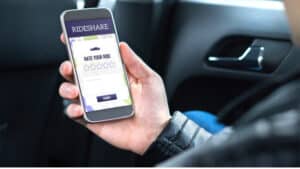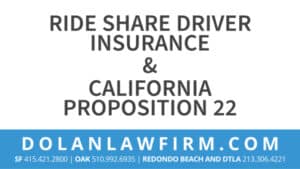
This week’s question comes from Aimee K, from the Outer Richmond, who asks: “I have been an Uber driver for the past two and a half years. I heard that Uber entered into a settlement that stated that we are employees and should have been compensated more than we were. Is this true, am I going to get some money from this?”
Aimee, the short answer is yes there is a class action in which there is a proposed settlement but it did not establish that Uber drivers are employees.
I believe that part of Uber’s motivation to settle was to head off a determination that drivers are employees. Any yes, you probably will receive, in addition to other benefits, a cash payment.
A class action is one in which there are a significant number of people (numerosity) which have suffered a similar type of harm and the common questions of law and fact predominate over claims of any individual (commonality).
The first phase in a class action is having a judge certify the class i.e. she must determine if there is numerosity and commonality.
A good example of a recent class action which has been certified is that involving Volkswagen’s deceptive practice relating to emissions in diesel cars. A large number of purchasers have been affected in a similar way.
Class actions are filed under the name of a representative plaintiff that has claims representative of the class. They are brought in situations where the individual harm is small (think $1.00 per month on your cable bill) but, collectively, the amount of money the corporation makes from the fraud, deception or wrongdoing, is in the millions or hundreds of millions of dollars.
Big corporations and the Chamber of Commerce have been trying to eliminate these actions: they want to require each person, with their small loss, to go to court. They know that people won’t be able to find lawyers to represent them and the small amount taken from them wont justify the filing fee even in small claims court much less the time off work to prosecute the claim.
Turning to the Uber class action, Douglas O’Conner v. Uber Technologies, there were two major claims: 1) that Uber was representing that drivers were being tipped through the app while drivers received no, or only partial, benefit from the tips, and 2) that the drivers were entitled to reimbursement of expenses that should have been reimbursed by Uber pursuant to the California Labor Code.
The class was certified and aggressively litigated for years. A fundamental factual and legal issue was whether drivers were Uber employees as that was an essential part of the Plaintiff’s claims.
The law regarding tipping and reimbursement only applies to employees.
Uber fought the employee claim tooth and nail and made a motion to the court to dismiss the case (summary judgment) claiming as a matter of law that the undisputed facts could result in but one conclusion: drivers were not employees.
Judge Chen, in the U.S. District Court (here in San Francisco) shot that down with a strongly worded decisionindication that he thought the independent contractor argument didn’t have merit. This did not mean the Plaintiffs won, it simply meant they had the right to proceed to a jury and a trial was scheduled to begin on June 20, 2016.
Uber didn’t want this case to go to trial because a factual determination by a jury that drivers were employees would negatively affect them in many other areas of the law throughout the country such as claims for unemployment, workers compensation, and the right to reimbursement for expenses, so they settled before a trial was held and a verdict/finding was reached.
So the settlement does not resolve the independent contractor/employee issue. That issue is still being fought in the State Court (Berwick v. Uber – employee reimbursement) and before the California Unemployment Appeals Board (Case No. 5371508 – unemployment claim).
Uber has not fared well in these matters, each department having ruled Uber is an employer. A decision in the O’Conner case could have thwarted their appeals in these other cases and forums.
What did arise out of the O’Conner case is the ability of drivers to post notice that passengers can tip them directly, elimination of Uber’s ability to deactivate drivers without cause, elimination of Uber’s ability to deactivate drivers for low ratings, the creation of a driver’s association, and payments of up to $25,000 for drivers who have driven the greatest number of hours with recovery being adjusted on a sliding scale based on number of miles driven.
The total settlement, including attorney’s fees, if approved by the court as being fair, is $100,000,000 for drivers in Massachusetts and California. For more information go to Uberlawsuit.com.
Christopher B. Dolan is the founder and Lead Trial Counsel at the Dolan Law Firm. Email your question to help@dolanlawfirm.com.









